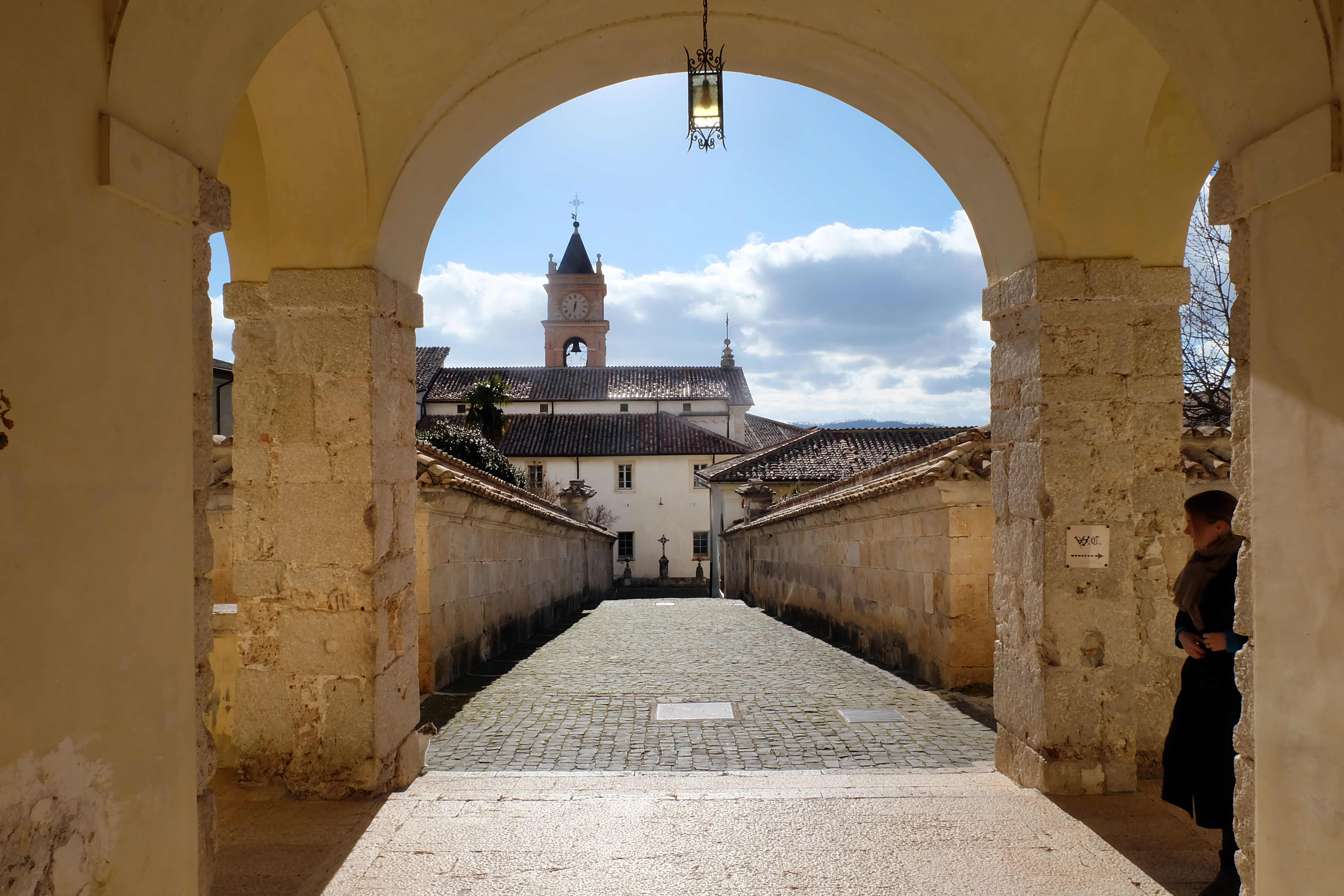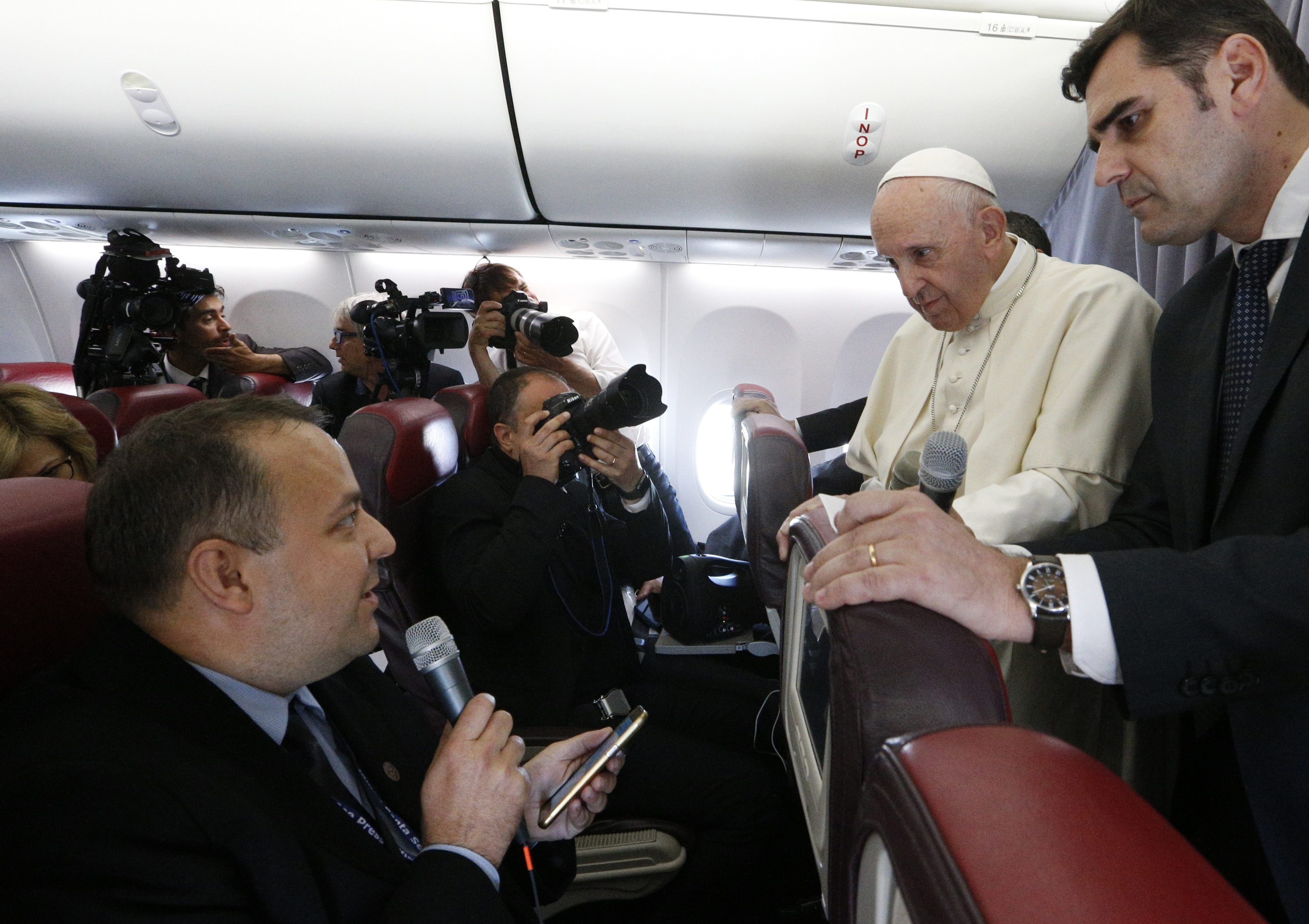Pope Francis has said Europe must rediscover "its own identity, its own unity," so it can overcome "divisions and borders”. For this to happen a crucial principle of the Church’s social doctrine is required: solidarity.
Speaking on the Papal plane returning from Romania to Rome, the Pope pointed out that the global financial system, which leaves many young people unemployed and others discarded, makes it difficult for individual countries to solve problems alone. Solidarity, where poorer countries received support from wealthier ones, is vital for the common good.
“There is a need for global solidarity,” Francis stressed.
He warned that the continent was returning to a “divided” and “belligerent” past. He urged Europe to “take up the mysticism” of its founding fathers to keep the dream of European unity alive.
“Please let’s not let Europe be overcome by pessimism or by ideologies, because Europe is not being attacked by canons or bombs in this moment, but by ideologies - ideologies that are not European, that come either from outside or which stem from small groups in Europe,” he said.
“Someone could ask under their breath ‘Is this perhaps the end of a 70-year adventure?’,” he said.
Romania is one of the newer members of the European Union after joining the bloc in 2007. But the EU - founded on the principles of Catholic social teaching - is coming under pressure from Brexit, and the rise of the far-right and nationalists in Italy, France and Poland.
The ancestors of Europe, who witnessed two bloody world wars before putting their divisions aside, would be alarmed at the rhetoric being used by politicians today. On the plane, Francis said political leaders must be honest and avoid campaigns based on “calumny, defamation, scandals and many times, sowing hate and fear. This is terrible.”
If tradition, or history, can teach anything it means to avoid the mistakes of the past.
“Only humans fall into the same hole twice,” Pope told reporters bluntly. “Donkeys don’t do it.”
His remarks to reporters on 2 June that the Church's tradition cannot become a "museum" is elucidated by the late Jaroslav Pelikan, an eminent scholar of Christianity said in 1983,who said: “Tradition is the living faith of the dead. Traditionalism is the dead faith of the living.”
The 82-year-old Jesuit Pope has faced frequent criticism from some Catholics who have accused him of dangerous meddling in this area by opening the way for remarried divorcees to receive communion and toughening the Church’s stance against the death penalty.
But this is a superficial reading of tradition, according to the Pope. Francis’ comments on the plane from Romania to Rome reveal a deeper understanding of the word, which comes from the Latin verb “tradere”, meaning to “hand down”, or pass on. For the Pope, tradition is not about safeguarding nostalgia but, as the composer, Gustav Mahler said, offers the guarantee of the future.
“Tradition is not a museum,” he explained during his inflight press conference. “Tradition does not protect ashes.”
He added: “The nostalgia of the integralists is to return to the ashes. No! Traditions are roots that guarantee that the tree grows, blossoms and bears fruit.”
The Pope was responding to a question about Benedict XVI, and whether he still considers the Pope Emeritus as a grandfather, an analogy Francis made early in his pontificate. While the Pope has maintained good relations with Benedict, a court around the retired Pope see him, incorrectly, as the symbol of a restorationist Church with a traditionalist liturgy and fortress mentality. For some Catholics, Benedict’s resignation led to a deep sense of grief, which later turned to anger when they felt the papacy of Francis was no longer on the same trajectory as his predecessor. In recent weeks the 92-year-old Pope Emeritus has been brought into the row over the clerical sexual abuse scandal in a way that seeks to place him at odds with Francis.
But the Pope’s reply shows the continuity between the papacies; that the historic decision by the German Pope to resign - in harmony with Canon Law and not without precedent - was part of the Church’s ongoing tradition.
“He has great lucidity, and listening to him speak, I become strong. I feel the juice of the roots that come to me and help me to go forward. I feel this tradition of the church, which is not something of a museum,” Francis said. “The tradition of the Church is always in movement.”



 Loading ...
Loading ...